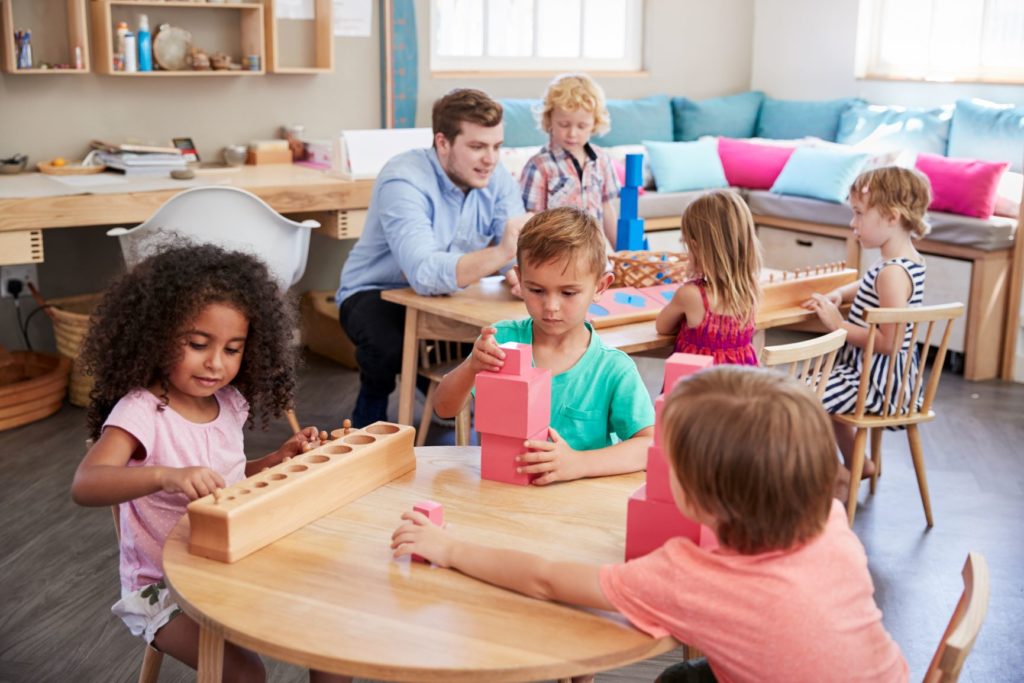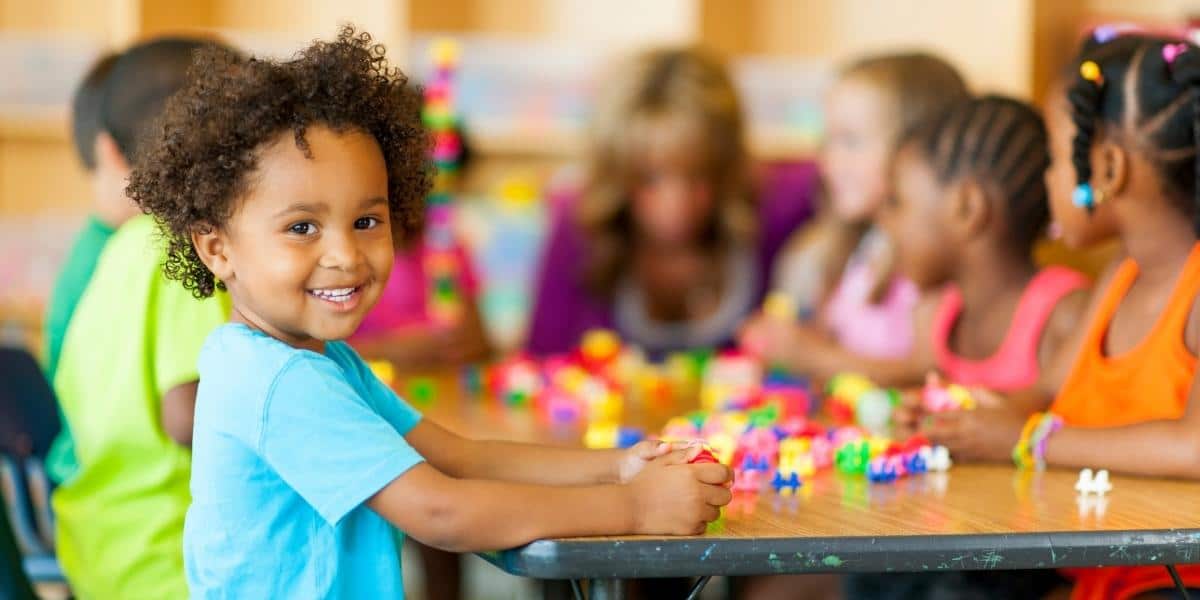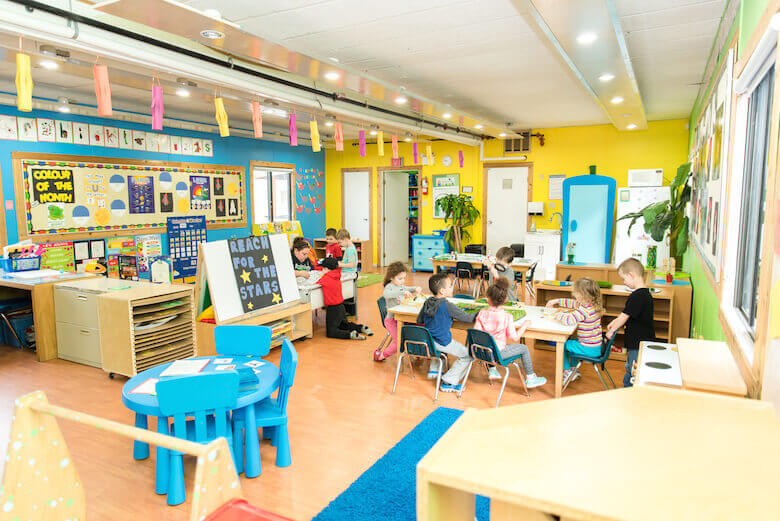How To Identify High-Quality Childcare Near Me Centers
The Function of Childcare in Fostering Social Skills and Very Early Discovering
Daycare offers as a significant setting for little ones, assisting in important social communications that promote early knowing. In this structured setup, youngsters involve with peers and caretakers, creating vital communication and teamwork skills. As they browse play and various activities, they discover to solve problems and develop psychological intelligence. Recognizing the subtleties of these interactions discloses the extensive impact childcare has on a kid's development, shaping their future partnerships and academic preparedness. What specific abilities do kids obtain in this setup?
The Significance of Social Interaction in Day Care
While lots of parents identify the significance of early childhood years education and learning, the duty of social interaction in day care is frequently underestimated. Daycare setups offer youngsters with indispensable chances to involve with peers, promoting necessary social skills. During these formative years, children find out to browse numerous social dynamics, such as sharing, teamwork, and conflict resolution. Engaging with varied age groups and characters enhances their capability to adapt to different environments and develop empathy in the direction of others.

Building Communication Abilities Through Play
Play functions as a powerful medium for kids to develop crucial communication abilities in childcare setups. Through different play tasks, youngsters involve in discussions, share their thoughts, and learn to listen to others. Role-playing video games, as an example, motivate them to utilize language in various contexts, advertising vocabulary expansion and understanding of social cues.

Storytelling throughout play enables children to convey emotions and ideas, helping them create narrative abilities and confidence in their spoken expressions. On the whole, play not only acts as a pleasurable leisure activity but likewise as a crucial system for creating the interaction skills essential for effective social communications in later life.
Urging Cooperation and Synergy
Participation and team effort are important abilities that youngsters can cultivate in childcare environments. Through different team activities, such as constructing jobs or joint games, children learn to share duties and pursue common objectives. These communications cultivate an understanding of the relevance of listening to others, bargaining roles, and endangering when essential.
In day care setups, caregivers often produce possibilities for children to engage in team effort by motivating them to take part in team jobs. This not just aids kids develop social bonds but likewise cultivates a feeling of belonging and area.
As they browse these cooperative experiences, kids get important insights right into the dynamics of dealing with peers. They find out to value diverse point of views and identify that each member contributes uniquely to the group effort. Ultimately, these very early lessons in collaboration and team effort prepared for much healthier relationships and reliable cooperation in future social and academic settings.
Structured Understanding Activities and Cognitive Growth
Structured learning tasks play an indispensable function in fostering cognitive development in little ones (Childcare Near Me). These activities, that include puzzles, storytelling, and hands-on experiments, boost vital reasoning and problem-solving abilities. In a daycare setup, organized knowing urges kids to engage with their peers, improving their capacity to process information and comprehend numerous concepts
With guided play and interactive jobs, youngsters develop foundational skills such as numeracy and literacy. Activities focused around numbers can aid children grasp mathematical concepts, while storytelling enhances language acquisition and comprehension. In addition, structured learning allows educators to evaluate developing development and dressmaker activities to private understanding Daycare North York needs.

Including a varied variety of structured tasks not just advertises cognitive development however also prepares children for future academic success. By giving a balanced environment that fosters exploration and inquiry, daycare programs play a necessary function in forming the cognitive capabilities of young learners.
Cultivating Psychological Intelligence and Confidence
Psychological knowledge and confidence are necessary components of a kid's development, enhancing the cognitive abilities promoted with structured knowing activities. In daycare settings, youngsters are supplied with chances to express their feelings and engage in social communications, which are essential for developing psychological awareness. Through guided play and group activities, youngsters find out to determine their sensations, identify those of others, and establish empathy.
Moreover, interaction with caretakers and peers aids to cultivate self-worth and resilience. Favorable support and motivation from grownups empower children to take threats and face challenges, promoting a feeling of achievement. As they navigate social characteristics, youngsters build self-confidence in their capabilities to communicate, work together, and resolve disputes - Child Care Near Me. This nurturing environment permits the steady development of emotional intelligence, which is important for future interpersonal partnerships and total health. Consequently, childcare plays a significant function in promoting both emotional knowledge and self-confidence in young kids
Often Asked Concerns
Just How Can Parents Choose the Right Day Care for Their Child?
Moms and dads must consider elements such as place, team credentials, safety requirements, educational program, and reviews from other moms and dads when picking the ideal daycare for their kid, ensuring it lines up with their child's developing demands and family values.
What Age Is Best for Starting Day Care?

Exactly How Does Day care Influence Children's Habits in the house?
Daycare commonly positively influences kids's actions in the house by enhancing social abilities, advertising independence, and encouraging emotional law (Childcare North York). Consequently, youngsters may exhibit better interaction and cooperation, causing even more unified family members characteristics
Exist Any Type Of Disadvantages to Childcare Presence?
Yes, there are drawbacks to childcare attendance, including prospective splitting up stress and anxiety, direct exposure to ailments, and irregular caregiving. These variables can impact a youngster's emotional health and adjustment at home, influencing total family members characteristics.
Just How Can Moms And Dads Support Social Abilities Discovered at Childcare?
Moms and dads can sustain social abilities learned at daycare by promoting playdates, urging participating tasks, modeling positive interactions, going over sensations, and enhancing sharing and communication at home, thereby enhancing their child's social development and self-confidence.
Day care serves as a significant setting for young kids, helping with important social interactions that promote early discovering. Day care settings offer children with indispensable possibilities to engage with peers, cultivating essential social abilities. Play offers as a powerful medium for youngsters to build essential interaction abilities in childcare setups. In daycare setups, youngsters are supplied with opportunities to share their emotions and involve in social interactions, which are important for developing emotional recognition. Daycare usually positively affects children's actions at home by enhancing social abilities, promoting freedom, and motivating emotional regulation.